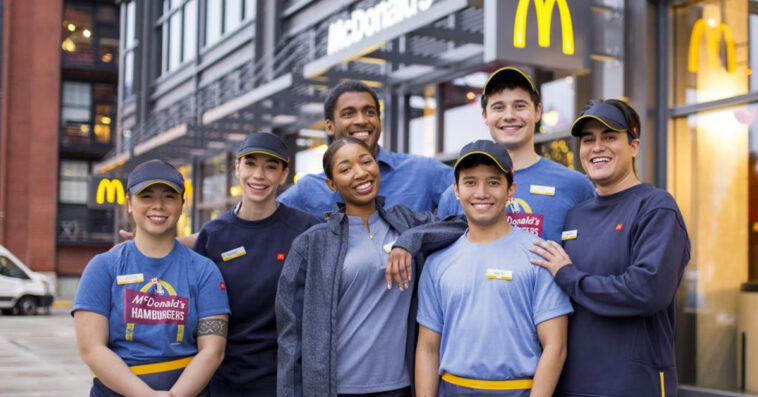Starting June 24, McDonald’s will find itself in the crosshairs of a nationwide boycott as The People’s Union USA calls on Americans to stop spending at the fast-food giant for an entire week. The protest, part of a broader “Economic Blackout” campaign, aims to spotlight the company’s alleged role in keeping wages low, avoiding taxes, and lobbying against federal pay increases. Supporters say the action—running through June 30—is more than symbolic: it’s a direct challenge to corporate power and a push for fairer treatment of workers across the country.
Why McDonald’s Is Facing a Boycott
The year 2025 has been a turbulent one for corporate giants, witnessing a wave of boycotts targeting some of America’s most recognizable brands. These actions have largely been fueled by a public outcry against companies perceived to be backtracking on their diversity, equity, and inclusion commitments, alongside broader discontent over practices such as tax avoidance and inadequate worker compensation. Among the companies in the spotlight is McDonald’s, which has faced criticism on multiple fronts, including an ongoing boycott initiated in late 2023 by the pro-Palestinian Boycott, Divestment, Sanctions (BDS) movement over the company’s alleged ties to Israeli military operations in Gaza.
More recently, the fast-food giant has also become a focus of The People’s Union USA, a self-described “grassroots movement focused on economic resistance, corporate accountability, and real justice for the working class.” Since February, the group has organized sweeping boycotts of Amazon, Walmart, and Target, encouraging Americans to withdraw their support from large corporations during periodic “economic blackouts.” During these week-long campaigns, the group urges the public to avoid all major consumer activity—from fast food and online shopping to streaming services—and instead support local, independently owned businesses.
In a video posted to Instagram in May, group founder John Schwarz underscored the campaign’s momentum: “Economic resistance is working. Target, Walmart, and Amazon are all feeling it, talking about it. They are talking about the boycotts. They are talking about The People’s Union USA. My friends, we are fighting for these corporations to finally pay their fair share of federal income taxes to alleviate that from the American worker. We are also fighting for these companies to hold manufacturers and themselves to a reasonable profit margin cap and equality across the board.”
Despite its lower profile compared to boycotts of other retail giants, the campaign against McDonald’s is quickly gaining traction as activists continue to call for systemic corporate reform.
Boycott Rekindles Debate Over McDonald’s Position on Wage Increase
McDonald’s has remained silent regarding the recent boycott spearheaded by The People’s Union USA. However, this isn’t the first time the fast-food giant has faced pressure over wages. Years ago, the company made a significant public statement, asserting it would no longer actively oppose calls for increased minimum wages.
This shift in stance was articulated by Genna Gent, then vice president of government relations for McDonald’s, in a 2019 letter to the National Restaurant Association, later obtained by Politico. In it, Gent clearly stated: “Going forward, McDonald’s Corporation will not use our resources, including lobbyists or staff, to oppose minimum wage increases at the federal, state or local levels. Nor will we participate in the association advocacy efforts designed expressly to defeat wage increases.”
This earlier commitment stands in interesting contrast to the current reasons for The People’s Union USA’s boycott, which partly targets McDonald’s for “known lobbying against wage increases.”
People’s Union USA Unveils Next Targets in Expanding Boycott Campaign
The “economic resistance” campaign orchestrated by The People’s Union USA is far from over. Looking ahead, the group has outlined an aggressive schedule of boycotts designed to maintain pressure on major corporations throughout the summer months.
An Independence Day boycott is on the agenda, urging consumers to rethink their spending on the nation’s birthday. This will be followed by a month-long boycott in July, specifically targeting Starbucks, Amazon, and Home Depot. Not content to stop there, Schwarz has also declared that McDonald’s, Walmart, and Lowe’s will once again be subject to a collective consumer withdrawal in August.
Source: Newsweek

